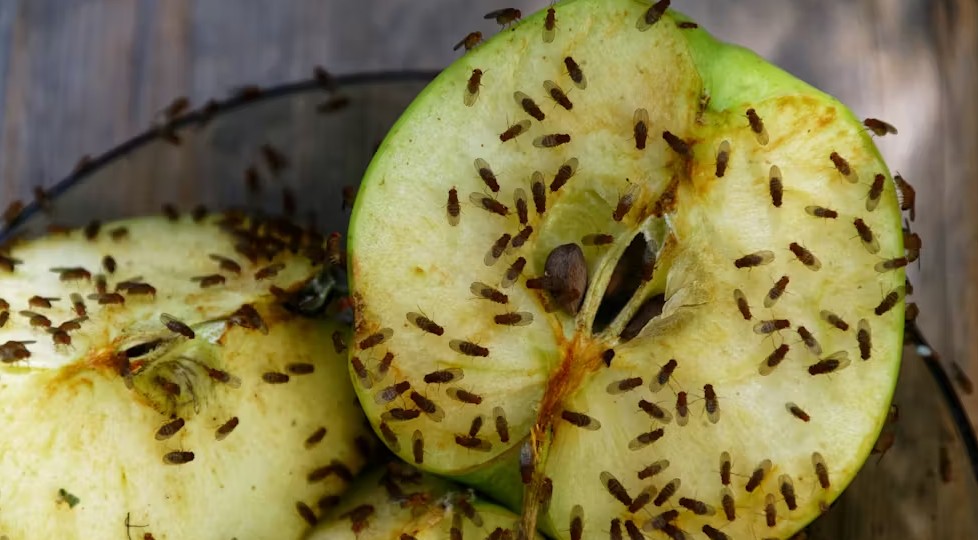Anti-inflammatory diet cuts death risk in stage 3 colon cancer by 63pc, new study finds

The study, conducted by researchers at the Dana-Farber Cancer Institute, also found that patients who engaged in regular moderate physical activity, such as walking for an hour three times a week, had markedly better survival rates.
A new clinical trial presented at the 2025 ASCO Annual Meeting shows that an anti-inflammatory diet can significantly boost survival rates for patients with stage III colon cancer, while a pro-inflammatory diet may raise the risk of death by as much as 87 per cent.
An anti-inflammatory diet is a way of eating that helps reduce chronic inflammation in the body, which is linked to conditions like heart disease, diabetes, and cancer.
More To Read
- Alone in the fight: Nairobi mother shares breast cancer battle after husband walks away
- Expert calls for early screening, policy reforms as colon cancer cases rise in Kenya
- How unregulated tobacco products in Kenya are posing serious public health threat
- How cancer suvivor is offering hope to children diagnosed with the disease
It focuses on whole, nutrient-rich foods—like leafy greens, fruits, whole grains, legumes, nuts, seeds, and fatty fish such as salmon—which are packed with antioxidants, fibre, and healthy fats that help combat inflammation.
At the same time, the diet limits pro-inflammatory foods like red and processed meats, refined grains, sugary drinks, and highly processed foods.
Herbs and spices like turmeric and ginger are often included for their natural anti-inflammatory benefits.
Moderate physical activity
The study, conducted by researchers at the Dana-Farber Cancer Institute, also found that patients who engaged in regular moderate physical activity, such as walking for an hour three times a week, had markedly better survival rates.
When combined with an anti-inflammatory diet, the benefits were even more pronounced: patients had a 63 per cent lower risk of death compared to those consuming a pro-inflammatory diet and engaging in minimal physical activity.
These findings are particularly relevant in Kenya, where colon cancer is an emerging public health challenge.
With an incidence rate of 4.8 per 100,000 people, many patients are diagnosed at advanced stages when treatment options are more limited.
The research highlights the importance of lifestyle interventions—especially diet and exercise—in both the prevention and post-treatment management of colon cancer.
The trial began in 2010 and aimed to reduce cancer recurrence in patients with stage III colorectal cancer.
All participants underwent surgery followed by chemotherapy, with some also receiving the anti-inflammatory drug celecoxib.
A subset of 1,625 patients who completed detailed dietary and physical activity questionnaires was included in this lifestyle analysis.
Researchers used an empirical dietary inflammatory pattern (EDIP) score to assess how inflammatory each participant’s diet was, based on food frequency questionnaires.
Diets high in red and processed meats, refined grains, and sugary drinks were classified as pro-inflammatory, while those rich in vegetables (especially leafy greens), coffee, and tea were considered anti-inflammatory.
Results showed that patients in the top 20 per cent for pro-inflammatory diet scores had an 87 per cent higher risk of death compared to those in the bottom 20 per cent.
Physical activity further amplified the survival benefits. Notably, the use of celecoxib did not significantly influence the association between diet and survival, reinforcing that dietary patterns independently affect outcomes.
Dr Sara Char, the study’s first author and a clinical research fellow at Dana-Farber, presented the findings at the ASCO meeting in Chicago.
Diet and exercise
“One of the most common questions we hear from patients is, ‘What can I do after treatment to reduce my risk?’” said Char.
“This study provides strong evidence that diet and exercise are powerful tools in improving long-term outcomes,” said Dana in a press statement.
A similar study, but on lung cancer patients, published in Cancer Nursing in 2023, investigated how diet could influence fatigue levels in lung cancer patients receiving chemotherapy.
Specifically, it looked at whether a diet designed to reduce inflammation, based on the Dietary Inflammatory Index (DII), could improve patient outcomes compared to a standard diet.
In a randomised controlled trial, 106 patients with lung cancer were divided into two groups. One group received nutritional support focused on an anti-inflammatory diet, while the control group continued with their usual eating habits.
For three months, the researchers assessed cancer-related fatigue, markers of inflammation, and nutritional status.
The findings showed that patients on the anti-inflammatory diet experienced significantly lower levels of cancer-related fatigue. They also had reduced levels of high-sensitivity C-reactive protein (hs-CRP), an indicator of inflammation, and improved nutritional markers such as albumin levels and scores on the Patient-Generated Subjective Global Assessment (SGA).
These results suggest that an anti-inflammatory diet may play a meaningful role in reducing fatigue and improving both the nutritional and inflammatory profiles of lung cancer patients undergoing chemotherapy.
Dietary changes
The study highlights the potential value of integrating dietary interventions into supportive cancer care, with healthcare professionals, particularly nurses, playing a key role in guiding and encouraging patients to make these dietary changes.
According to the World Health Organisation (WHO), colorectal cancer is a form of cancer that develops in the colon (large intestine) or rectum. It ranks among the most prevalent cancers globally and can lead to serious illness or death.
The risk of developing colorectal cancer increases with age, with the majority of cases occurring in individuals aged 50 and older.
Typical symptoms may include diarrhoea, constipation, blood in the stool, abdominal discomfort, unexplained weight loss, fatigue, and low iron levels. However, many individuals may not exhibit symptoms during the early stages of the disease.
Several lifestyle-related factors can contribute to the onset of colorectal cancer. These include a high consumption of processed meats, inadequate intake of fruits and vegetables, lack of physical activity, obesity, smoking, and excessive alcohol use.
Fortunately, the risk and impact of colorectal cancer can be greatly reduced through primary prevention strategies. These include maintaining a healthy lifestyle, avoiding known risk factors, and participating in regular screening programs for early detection.
In 2020, it was estimated that there were over 1.9 million new cases of colorectal cancer worldwide, resulting in more than 930,000 deaths.
Top Stories Today

















































